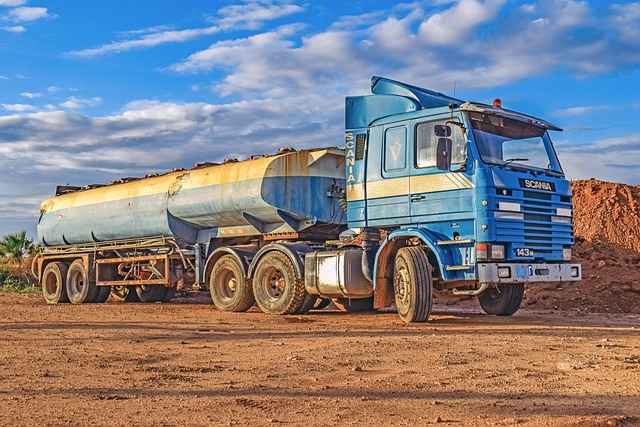For new truckers, cargo liability coverage is vital for protecting against financial losses related to transported goods. Key aspects include understanding covered items, excluded hazards (like perishable or hazardous materials), and policy types (basic, comprehensive, customized). By assessing operational needs, comparing policy details like limits, deductibles, and claims processes, new truckers can choose the right cargo liability coverage to align with their business risks and financial capabilities. Customizing policies addresses specific operational challenges, as seen in case studies where informed choices led to either customer satisfaction or underinsurance during trips.
Introducing our comprehensive guide designed to empower new truckers with essential knowledge about cargo liability coverage. In today’s trucking industry, understanding cargo liability is crucial for mitigating risks and ensuring business sustainability. This article breaks down the basics of cargo liability coverage, highlights its significance, offers practical tips for policy evaluation, and shares real-world case studies to help you make informed decisions. By the end, you’ll be equipped with the tools needed to navigate this vital aspect of trucking successfully.
Understanding Cargo Liability Coverage: The Basics Explained

For new truckers, understanding Cargo Liability Coverage is a crucial step in making informed decisions about their policies. This type of coverage protects against financial loss in the event that goods being transported are damaged or lost. It’s essentially an insurance policy that shifts the risk from the carrier to the insurer, providing peace of mind on the road. The basics involve knowing what’s covered and what’s not; for instance, standard policies often exclude perishable or hazardous materials unless specifically added.
New drivers should familiarize themselves with the different levels of cargo liability coverage available, such as basic, comprehensive, and customized plans. Basic covers minimum legal requirements, while comprehensive offers broader protection for high-value cargo. Customized policies cater to specific needs, ensuring that truckers are adequately insured based on their unique transportation tasks. By grasping these fundamentals, new truckers can confidently navigate the selection process and choose a policy that aligns with their business demands.
Why Cargo Liability is Crucial for New Truckers

For new truckers, navigating the complex world of trucking operations can be a significant challenge. One area that often gets overlooked but is crucial for their protection is cargo liability coverage. This type of insurance is essential as it shields drivers from potential financial losses in case of cargo damage or loss during transportation. With every load, new truckers assume responsibility for ensuring the safe delivery of goods, and cargo liability coverage acts as a safeguard against unforeseen circumstances like accidents, theft, or weather-related incidents that could result in significant claims.
Understanding cargo liability coverage options is vital for making informed decisions about insurance policies. New truckers should aim to acquire sufficient coverage that aligns with their business needs, ensuring they are not underinsured and vulnerable to financial strain. By prioritizing this aspect of their operations, they can build a solid foundation for their trucking careers, minimizing risks and fostering confidence in their abilities.
How to Evaluate and Choose the Right Policies

When evaluating policies, new truckers should start by understanding their operational needs. This involves assessing factors like the type and value of cargo they’ll typically transport, the distances they’ll be driving, and the regulatory environment in which they’ll operate. Based on these considerations, they can begin to narrow down suitable policy options.
One key aspect is ensuring adequate cargo liability coverage. This protects against potential losses or damages resulting from accidents involving their cargo. It’s crucial to compare policies based on their liability limits, coverage types (e.g., comprehensive, collision), and any specific exclusions or limitations. Additionally, reviewing the policyholder’s deductibles and understanding the claims process is essential for making an informed decision that aligns with their operational risks and financial capabilities.
Real-World Scenarios: Case Studies of Successful Policy Choices

In the fast-paced world of trucking, making informed decisions about policies can be a game-changer. Real-world scenarios offer valuable insights into how different choices pan out. Consider a young trucker, Sarah, who just started her career. She had options for cargo liability coverage but chose a comprehensive policy that included not just basic protection against physical damage but also coverage for delays caused by weather or traffic. This decision proved crucial when she encountered heavy rain, leading to a delayed delivery and a satisfied customer who appreciated her transparency about the delay’s cause.
Another case involves an experienced operator, Mike, who decided to opt-out of certain optional endorsements thinking they were unnecessary. However, during a cross-country trip, his truck was involved in a minor accident due to mechanical failure. Luckily, his basic policy covered the damages, but he realized that specific cargo liability coverage could have provided more protection for rare but significant incidents like this one. These case studies underscore the importance of understanding one’s needs and choosing policies that offer tailored protections.
Empowering new truckers with knowledge about cargo liability coverage is a vital step in ensuring safe and successful trucking careers. Understanding the basics, recognizing its crucial role, and learning how to evaluate policies can prevent costly mistakes and protect against significant financial losses. By studying real-world scenarios and case studies, aspiring truckers can make informed decisions and select the best cargo liability policies to suit their needs. This knowledge equips them to navigate the complex insurance landscape and thrive in today’s trucking industry.
